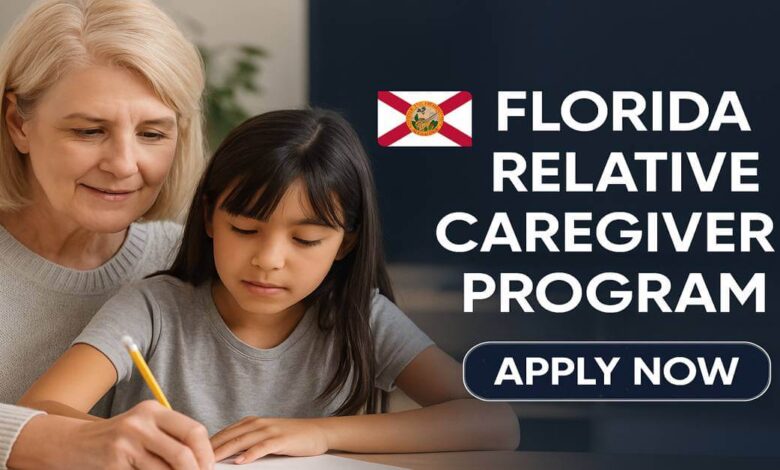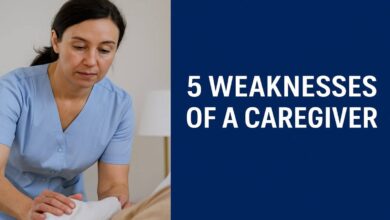
Florida Relative Caregiver Program – Complete Guide
The Florida Relative Caregiver Program (RCP) is designed to support relatives and certain non-relatives who care for children removed from their parents due to abuse, neglect, or abandonment. The program offers monthly financial assistance and support services to caregivers who step in to provide a safe, stable home for these children.
This guide covers the eligibility requirements, payment rates, application process, and current legislative updates related to the RCP.
What Is the Florida Relative Caregiver Program?
The RCP is authorized under Florida Statute § 39.5085. It provides monthly financial stipends to relatives or non-relatives caring for children who have been adjudicated dependent by a Florida court and placed in their care by the Department of Children and Families (DCF).
The goal is to keep children with familiar caregivers instead of placing them in traditional foster care.
Check Also: How to Become a Caregiver in Oregon – Complete Guide
Who Is Eligible?
To qualify for RCP assistance, the following criteria must be met:
Caregiver Requirements
- Must be a relative within the fifth degree by blood or marriage (e.g., grandparent, aunt, uncle, cousin).
- Certain non-relatives may qualify if placement was made by the court or DCF.
- Must complete a home study and background screening.
- Cannot have a biological or adoptive parent living in the home for more than 30 days.
Child Requirements
- Must be under 18 years old (or under 19 if still in high school).
- Must have been formally adjudicated dependent by the court.
- Must live in Florida and have no more than $2,000 in assets.
- Must be placed in the caregiver’s home by the court or DCF.
Cooperation Requirements
- The caregiver must cooperate with child support enforcement.
- Caregivers must ensure the child is attending school and receiving required immunizations.
Payment Rates:
RCP payments vary based on the child’s age and the caregiver’s licensure status:
Initial Placement (First 6 Months)
If you are not licensed as a foster parent:
- Children age 0–5: $587/month
- Children age 6–12: $602/month
- Children age 13–17: $705/month
These are the foster care payment rates available temporarily to RCP caregivers for the first 6 months after court adjudication.
After 6 Months (Without Foster License)
If you are not licensed and continue care after 6 months:
- Children age 0–5: $242/month
- Children age 6–12: $249/month
- Children age 13–17: $298/month
With Level I Foster License
Caregivers who obtain a Level I Child-Specific Foster License before the six-month deadline may continue to receive the higher foster care rate beyond 6 months, potentially until the child achieves permanency.
Benefits:
1. Financial Assistance
Relatives receive monthly payments to help with the cost of raising the child. These payments are generally higher than child-only welfare benefits, though slightly lower than traditional foster care payments.
2. Keeps Children in Family Settings
By supporting relative placements, the program helps maintain stability, family connections, and emotional well-being for children who might otherwise enter foster care.
3. Broad Eligibility for Relatives
Eligible caregivers include relatives up to the fifth degree of kinship (e.g., grandparents, aunts/uncles, adult siblings, great-grandparents, cousins, stepparents).
4. Access to Medical and Social Services
Children placed with relatives often qualify for Medicaid, as well as Title XX social services and support through the Temporary Assistance for Needy Families (TANF) program.
5. No Foster Care Licensing Required
Unlike foster parents, relative caregivers do not need to be licensed, but they must complete a home study and background checks to ensure the placement is safe and appropriate.
6. Simplified Oversight and Reviews
Eligibility is reviewed regularly (typically every six months) to ensure continued compliance and proper care of the child.
7. Pathway to Legal Custody or Guardianship
In many cases, the relative caregiver may be given temporary custody or long-term guardianship, depending on the case and court decisions.
8. Statewide Availability
This program is available throughout Florida and coordinated through the Department of Children and Families (DCF) and local community-based care agencies.
How to Apply for Florida Relative Caregiver Program?
To apply for the Florida Relative Caregiver Program, follow these steps:
- Contact your DCF caseworker or Community-Based Care (CBC) agency.
- Complete the required home study and background screening.
- Submit necessary documentation including:
- Proof of relationship
- Court order of adjudication
- Residency and financial status
- Complete an application through the ACCESS Florida system at myflfamilies.com/accessflorida.
Important: Payments are not retroactive. Benefits begin when your application is approved and dependency is formally established.
Legislative Update:
In 2025, proposed legislation (SB 1046 and HB 819) aimed to change how caregiver payments are determined—basing them on placement date instead of dependency adjudication. These bills did not pass, so current rules remain in effect:
- Payments begin only after the child is adjudicated dependent.
- Licensed caregivers can receive higher rates earlier.
Final Thoughts:
The Florida Relative Caregiver Program plays a critical role in keeping families together and providing stability for children during difficult times. Understanding the eligibility criteria, payment structure, and licensing options is essential to maximize support.
If you’re caring for a child placed with you by DCF or the court, speak with your caseworker about RCP eligibility and begin the application process promptly.
Frequently Asked Questions:
Do I need to adopt the child to qualify?
No. Adoption is not required. The child must be placed with you by the court or DCF.
Can non-relatives apply?
Yes, but only in certain cases where the court has placed the child and dependency has been established.
Can I qualify if I took in the child informally?
No. Informal caregiving arrangements are not eligible. The child must be formally placed through a dependency proceeding.




